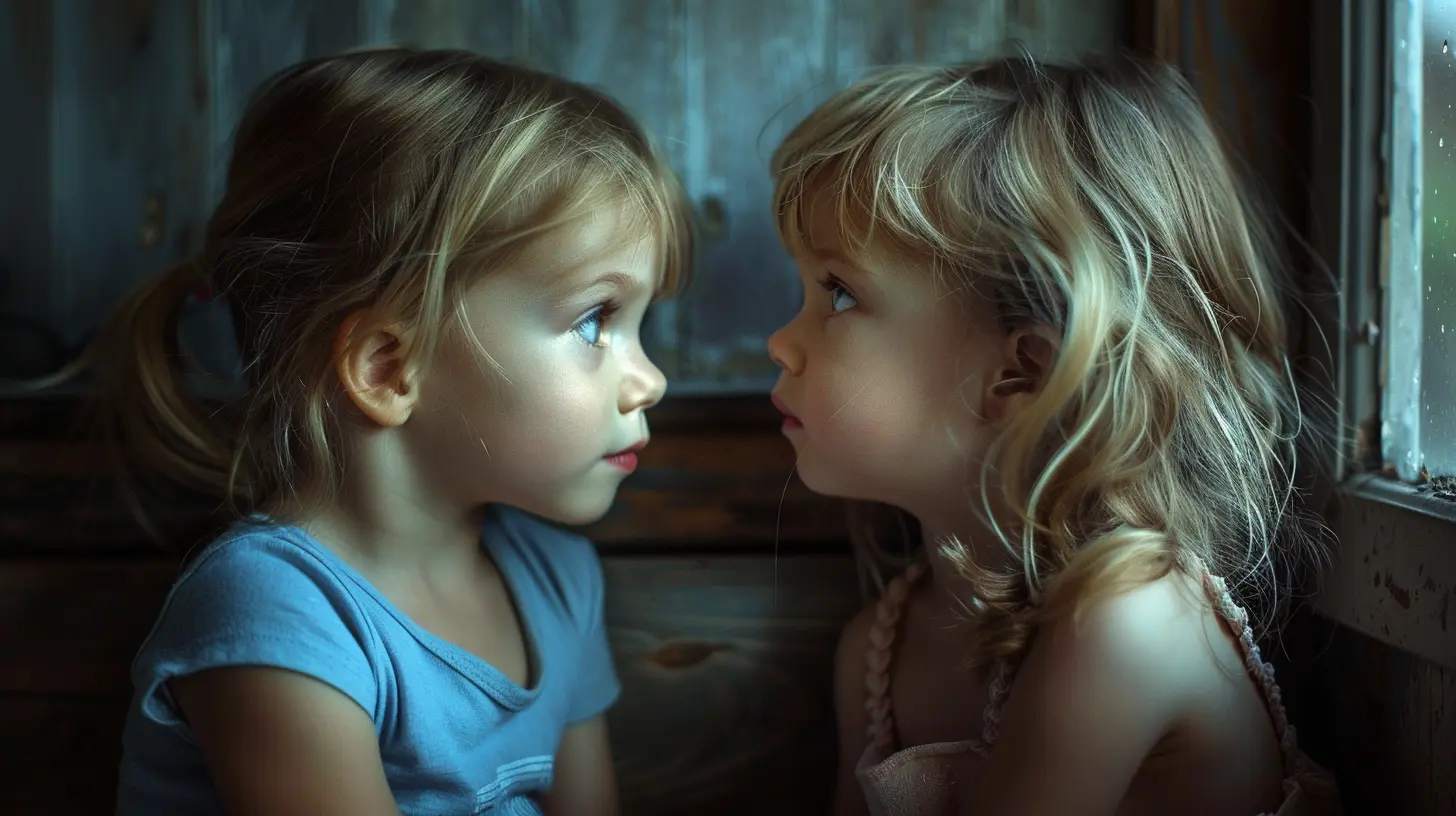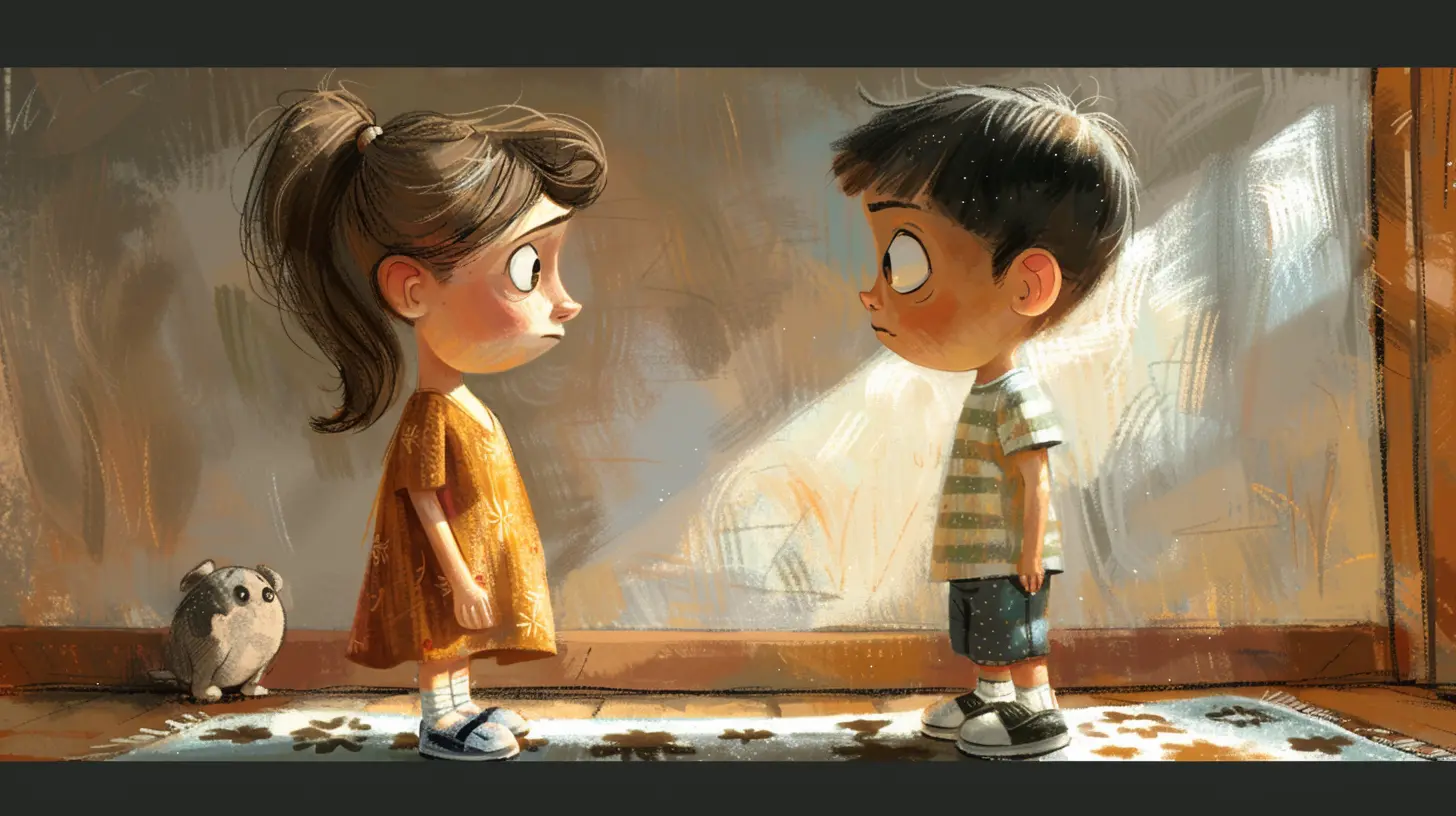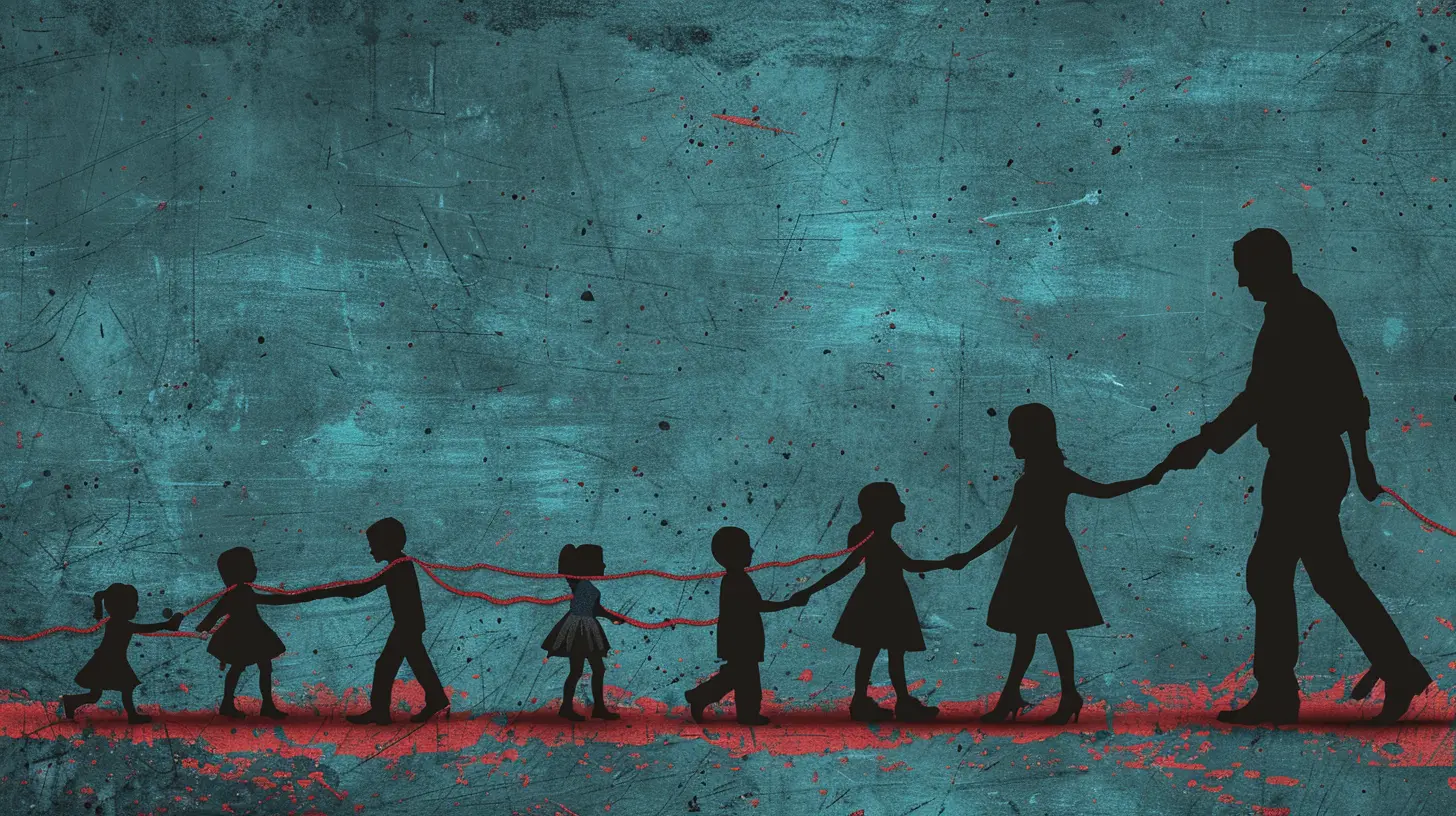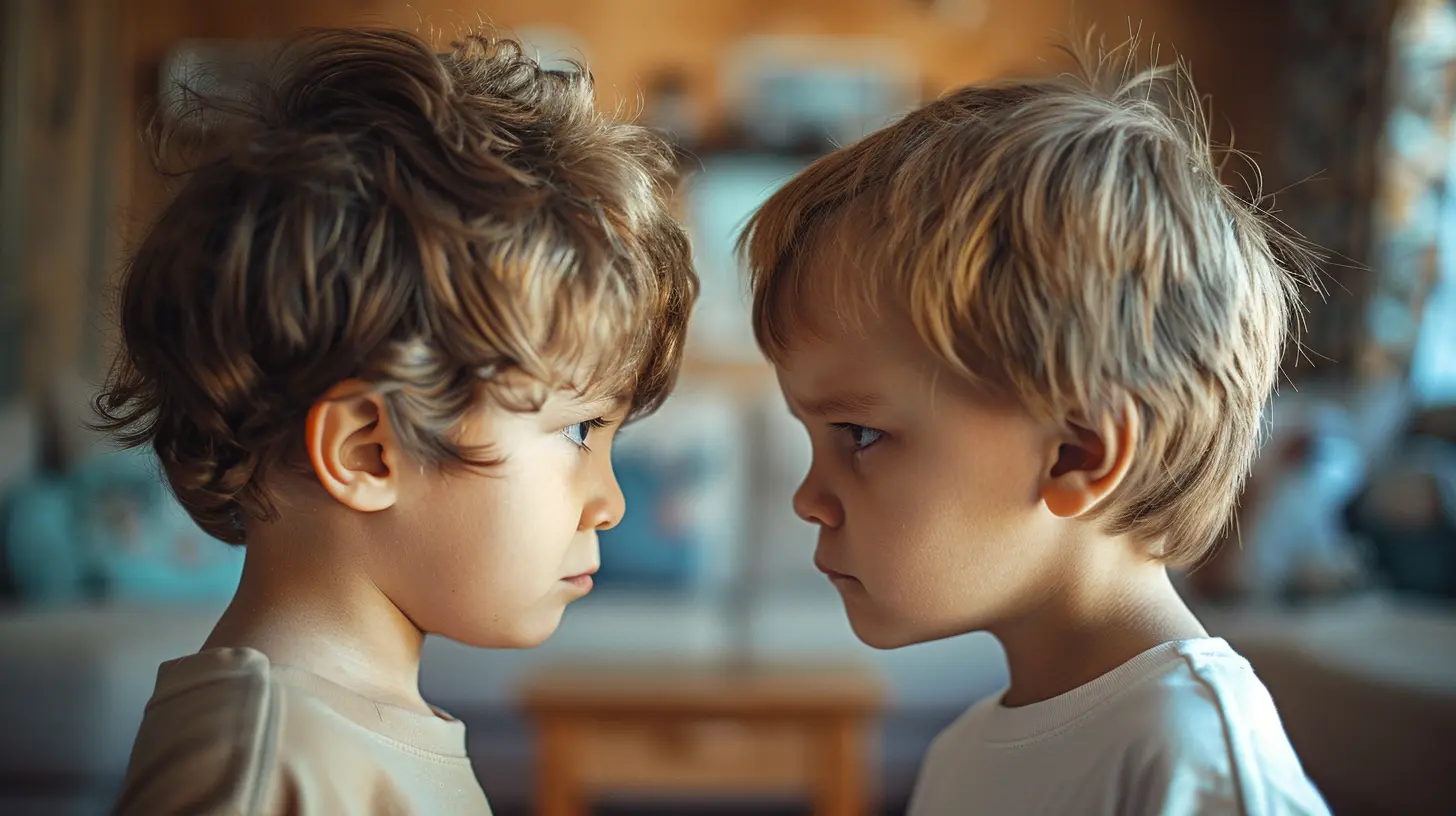Why Being a Friend First Is a Parenting Trap
22 November 2025
Parenting is a wild, messy, unpredictable ride. One day, you're cheering because your toddler used the potty, and the next, you're bartering with your teen for phone privileges. In this emotional roller coaster, it's only natural to want to be close to your kids. Many well-meaning moms and dads find themselves saying, “I want my kids to see me as their best friend.”
Cue the heartwarming daydream: movie nights, giggling over TikToks together, and sharing secrets over milkshakes. Sounds amazing, right?
But here's the curveball — trying to be your child's friend first can backfire in ways you might not expect. In fact, it can create confusion, blurred boundaries, and even undermine the very foundation you're working so hard to build. Let’s talk about why being a friend first is a parenting trap — and what to do instead.
The Friend Trap: It Feels Good… Until It Doesn’t
Let’s be real — everyone wants to be liked. Especially by their kids. No one wants to be the “mean” parent, the one always saying no or laying down the law. It feels good when your child says “you’re the coolest parent ever!” (That ego boost hits hard, right?)But here’s the catch: parenting isn’t a popularity contest.
Trying to maintain a friend-first relationship often means making the child feel comfortable at the cost of making the right decisions. And that “friendship” can undermine your authority and your child’s respect for your role.
You're Not Their Peer — And That's a Good Thing
Imagine your 12-year-old comes home from school with drama. Instead of guiding them, you gossip with them like a peer. Sure, they may feel heard in the moment — but they’re also watching you not show leadership or maturity.Kids need parents to be the lighthouse in the storm, not a fellow passenger caught in the waves.
You’re their safe space, sure. But that safety doesn’t come from being relatable — it comes from being reliable.
Boundaries Go Out the Window
A big risk of being a friend-first parent? Boundaries start to blur. Kids aren’t wired to manage relationships where they don’t know who’s steering the ship.When You Try Too Hard to Be Liked…
You might let things slide. You might avoid discipline because “it’ll hurt their feelings.” You might say yes to things that should be a hard no — all in the name of keeping the peace.But kids thrive with structure. Boundaries help them feel secure. It’s like a fenced yard where they can play freely — they know their limits, and within those, they feel safe. Yank out the fence, and the world becomes a bit too big and scary.
Discipline Isn’t a Dirty Word
Let’s talk about the dreaded “D” word: discipline. It’s often misinterpreted as punishment. But discipline actually comes from the Latin word "disciplinare," which means "to teach."And teaching? That’s the ultimate parent job.
Friends Don't Ground Friends
You’re not failing as a parent when you set consequences. You’re doing your job. Think about teachers or coaches you respected growing up. Were they your friends? Probably not. But they were consistent, fair, and guided you toward doing better.That’s what kids need from parents — not someone to laugh off their mistakes, but someone who helps them grow from them.
Friendship Can Wait… Parenting Can’t
Here’s a comforting thought: parenting is a long game. You’re not losing the chance to be friends with your child forever if you focus on parenting them now.Relationship Goals: Respect First, Friendship Later
Strong parent-child relationships are built on trust and respect, not trying to be the “cool” parent. Ironically, when you focus on parenting — not friendship — you earn their respect and admiration.And guess what? That deep, meaningful friendship? It often comes later. In adulthood. When they look back and realize, “Wow, Mom and Dad really had my back. They didn’t let me spiral just to keep me happy.”
The “Friend First” Parents You Know — And Their Horror Stories
We all know that one parent who acts more like a gossip buddy than a guardian. Maybe they let their kids stay up all night, skip school without consequences, or talk smack about teachers. At first glance, it looks fun — the kids adore them!But fast-forward a few years? Those same kids often face struggles with authority, accountability, and even self-discipline.
Being the Favorite Parent Isn’t Worth the Fallout
A lot of the time, being the “favorite” parent comes at the price of being the least effective one. Kids might gravitate toward the laid-back, permissive parent in the short term, but they often seek out the strong, steady one when life gets real.Emotional Support ≠ Emotional Dumping
Another slippery slope in the friend-first trap is emotional oversharing. Yes, you want to be open with your kids. But giving them adult-level emotional burdens? That’s a no-go.Kids aren’t your therapists, and they shouldn’t bear the weight of your marital problems, work stress, or unresolved childhood issues.
Be Supportive, Not Codependent
You can be emotionally available and supportive without blurring the parent-child line. Think of yourself as a coach on the sidelines — there when they need guidance, encouragement, and the occasional Gatorade break, but not running around the field like one of the players.Let’s Talk Teens… and the Real Test of Parenting
Oh, teenagers. The memes are funny because they're true — one minute they love you, the next they act like you invented embarrassment.But here's the thing: teens push boundaries because they're supposed to. They're figuring out who they are — and they need you to be the wall they can bounce off of.
Friends Don’t Say “No.” Parents Must.
Your teen doesn’t need another friend rolling their eyes at curfews and rules. They need someone grounded, consistent, and brave enough to say, “I love you too much to let that slide.”Even if it means being unpopular for a while. Even if they dramatically sigh and call you “so unfair.” That’s parenting gold. That’s how they know you care.
So… What’s the Right Balance?
Here’s the nuance. You don’t have to be a cold, authoritarian robot to be a good parent. You can be loving, fun, and emotionally open with your children — while still maintaining authority.Think: Friendly, Not Friend
Be approachable. Be kind. Be generous with your time and attention. Laugh together. Play together. Eat too many cookies together.But don’t put being liked above being respected. Guide before you giggle. Advise before you agree.
The Long-Term Payoff: Real Connection
When you prioritize being a parent, something beautiful happens over time: your relationship evolves naturally.Your kids grow up knowing you were their rock. They know you weren’t afraid to lead. And that respect? That’s what turns into friendship later — one with deeper roots and genuine connection.
Your Job Now Is to Lead, Not Be Liked
Short-term comfort leads to long-term chaos. But short-term discomfort (hello, boundaries and rules) often leads to long-term peace, security, and a genuine bond that lasts.Final Thoughts: Love Them Enough to Be the Parent
Parenting is not about being the fun one, the cool one, or the buddy. It's about being the one who steps up where no one else will. Who sets the rules when no one else wants to. Who says “no” when it's not popular, but necessary.Being a parent means loving your kids fiercely — enough to stand your ground when they need guidance, not guidance they like, but guidance they need.
Funny thing is? When they’re older, they’ll thank you for it. And that “strict” parent they rolled their eyes at? Ends up being the one they call for advice at 25.
So, love your kids. Listen to them. Hang out with them. Laugh together. But remember — be their parent. Friends come and go. But a solid, loving parent? That’s once in a lifetime.
all images in this post were generated using AI tools
Category:
Parenting MistakesAuthor:

Austin Wilcox
Discussion
rate this article
1 comments
Parisa McCarty
Great insights! Balancing friendship and parenting is tough. It's essential to set boundaries while fostering a loving relationship. Thank you for shedding light on this!
November 23, 2025 at 4:29 AM

Austin Wilcox
Thank you for your thoughtful comment! I completely agree—finding that balance is key to nurturing both relationships effectively.


